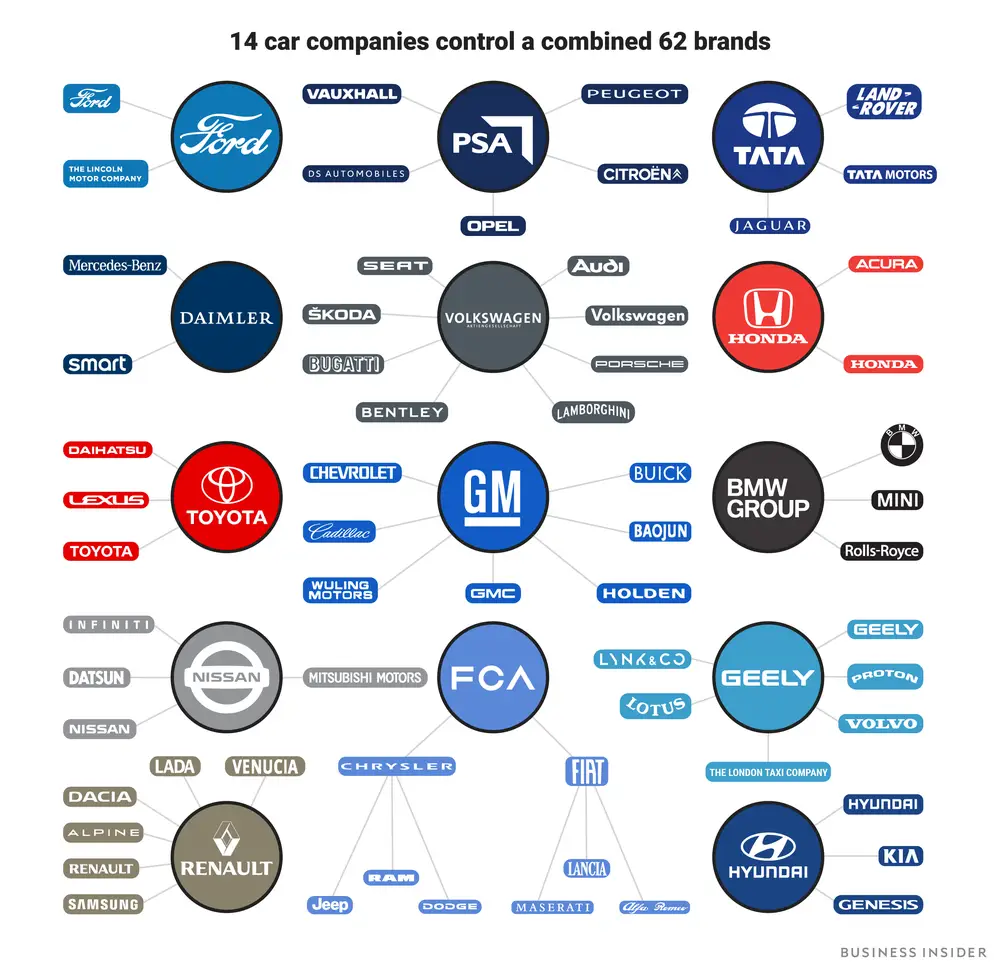Analyzing The China Market: Case Studies Of BMW, Porsche And Other Auto Brands

Table of Contents
The Chinese automotive market is the world's largest, a behemoth presenting both unparalleled opportunities and formidable challenges for international auto brands. Understanding the nuances of this complex market is crucial for survival, let alone success. This article delves into the strategies employed by leading brands like BMW and Porsche, providing invaluable insights for companies contemplating entry or expansion within the lucrative but fiercely competitive Chinese automotive industry. We'll explore successful market entry strategies, crucial aspects of China market analysis, and the ever-evolving landscape of the Chinese automotive industry.
BMW's Success in the Chinese Market
BMW's prominent position in China showcases the effectiveness of a well-executed China market strategy. Their success is a testament to a deep understanding of the local market and a commitment to adapting to its unique demands.
Localized Marketing and Product Adaptation
BMW's success hinges on its understanding of Chinese consumer preferences. They haven't simply exported their existing models; instead, they have tailored their offerings to resonate with the local market.
- Long-wheelbase versions: Recognizing the Chinese preference for spacious vehicles, BMW offers long-wheelbase versions of many of its popular models, providing increased rear-seat legroom.
- Digital Marketing Prowess: BMW masterfully utilizes popular Chinese digital platforms like WeChat and Weibo, engaging directly with consumers and building brand loyalty. They create targeted content, run interactive campaigns, and leverage influencer marketing.
- Localized Campaigns: Their marketing campaigns often feature local celebrities and reflect Chinese cultural values and sensitivities, fostering a strong connection with the target audience. For example, campaigns highlighting family values resonate strongly within the Chinese context.
Strong Dealer Network and After-Sales Service
A robust dealer network is paramount for any automotive brand's success in China, and BMW excels in this area.
- Extensive Reach: BMW has invested heavily in building a widespread and well-trained dealer network across China, ensuring accessibility and convenience for customers.
- High-Quality Service: They prioritize high-quality after-sales service and customer support, recognizing that customer satisfaction is crucial for long-term success. This includes proactive maintenance programs and efficient repair services.
- Dealer Relationship Management: Maintaining strong relationships with dealers is crucial for ensuring consistent service standards and a positive brand image. BMW implements rigorous training programs and provides ongoing support to its dealer network.
Porsche's Strategy for the Premium Segment in China
Porsche targets the affluent Chinese consumer, a segment with unique needs and preferences, effectively carving out a leading position in the luxury car market China.
Targeting the Affluent Chinese Consumer
Understanding the high-net-worth individual (HNWI) segment in China is critical for success in the luxury automotive market.
- Brand Prestige: Porsche cultivates an image of exclusivity and prestige, aligning itself with aspirational lifestyles and values cherished by this demographic. This is achieved through sophisticated advertising, carefully curated events, and strong emphasis on craftsmanship.
- Targeted Messaging: Their marketing resonates with the desires and aspirations of affluent Chinese consumers, emphasizing performance, luxury, and status.
- Strategic Sponsorships: Porsche participates in high-profile events and sponsorships that connect with their target audience, enhancing brand visibility and prestige within the luxury segment.
Digital Engagement and Experiential Marketing
Porsche leverages digital channels and immersive experiences to build brand loyalty and drive sales.
- Online Engagement: They utilize sophisticated digital marketing strategies across various platforms to connect with potential customers, showcasing the brand's heritage and performance capabilities.
- Experiential Marketing: Porsche organizes driving events, pop-up stores, and other engaging experiences that allow potential customers to interact with the brand and its products directly, creating lasting impressions.
- Online Community Building: Cultivating a strong online community around the Porsche brand fosters engagement and strengthens brand loyalty among existing and prospective customers.
Challenges and Opportunities for Other Auto Brands in China
The Chinese automotive industry presents both significant challenges and exciting opportunities for international and domestic players alike.
Competition from Domestic Automakers
The rise of domestic Chinese automakers like Geely, BYD, and NIO presents a stiff challenge to international brands.
- Competitive Pricing: Domestic brands often offer competitive pricing and innovative technologies, making them attractive to price-sensitive consumers.
- Technological Innovation: Chinese automakers are rapidly innovating, particularly in the area of electric vehicles, posing a significant threat to established players.
- Strategic Partnerships: International brands need to consider strategic partnerships with domestic companies to leverage their local knowledge and distribution networks.
Navigating Government Regulations and Policies
Understanding and adapting to China's complex regulatory environment is essential.
- Emission Standards: Strict emission standards necessitate investment in cleaner technologies and compliance strategies.
- Safety Regulations: Adherence to rigorous safety regulations is non-negotiable.
- Government Relationships: Building strong relationships with relevant government agencies is crucial for navigating the regulatory landscape successfully.
The Growing Importance of Electric Vehicles (EVs)
China's aggressive push towards electric mobility significantly impacts the automotive market.
- EV Market Dominance: China is the world's largest EV market, and success requires a strong commitment to electric vehicle technology and infrastructure.
- Government Incentives: Government incentives and subsidies are driving EV adoption, creating both challenges and opportunities for international auto brands.
- Infrastructure Development: Investing in charging infrastructure and related services is essential for success in the Chinese EV market.
Conclusion
The Chinese automotive market is dynamic and highly competitive, demanding a deep understanding of local consumer behavior, government policies, and the competitive landscape. BMW and Porsche's success highlights the importance of localization, effective branding, and a robust market entry strategy. For other auto brands aiming to succeed in this enormous market, adapting to the ever-changing landscape and learning from the experiences of established players is paramount. A thorough China market analysis is vital for crafting a successful market entry strategy and achieving long-term success within the Chinese automotive industry. Don't delay – start your China market analysis today and capitalize on the potential of this massive market.

Featured Posts
-
 Korean Mlb Players The Positive Influence Of Kim Ha Seong And Blake Snells Relationship
May 16, 2025
Korean Mlb Players The Positive Influence Of Kim Ha Seong And Blake Snells Relationship
May 16, 2025 -
 Fox News Faces Defamation Lawsuit From Ray Epps Over January 6th Coverage
May 16, 2025
Fox News Faces Defamation Lawsuit From Ray Epps Over January 6th Coverage
May 16, 2025 -
 Ankle Injury Update Jalen Brunsons Return To The Court This Sunday
May 16, 2025
Ankle Injury Update Jalen Brunsons Return To The Court This Sunday
May 16, 2025 -
 Khokkeynaya Legenda Rekordsmen Po Silovym Priemam Obyavlyaet O Zavershenii Karery
May 16, 2025
Khokkeynaya Legenda Rekordsmen Po Silovym Priemam Obyavlyaet O Zavershenii Karery
May 16, 2025 -
 Rays Sweep Padres Complete Game Coverage On Fm 96 9 The Game
May 16, 2025
Rays Sweep Padres Complete Game Coverage On Fm 96 9 The Game
May 16, 2025
